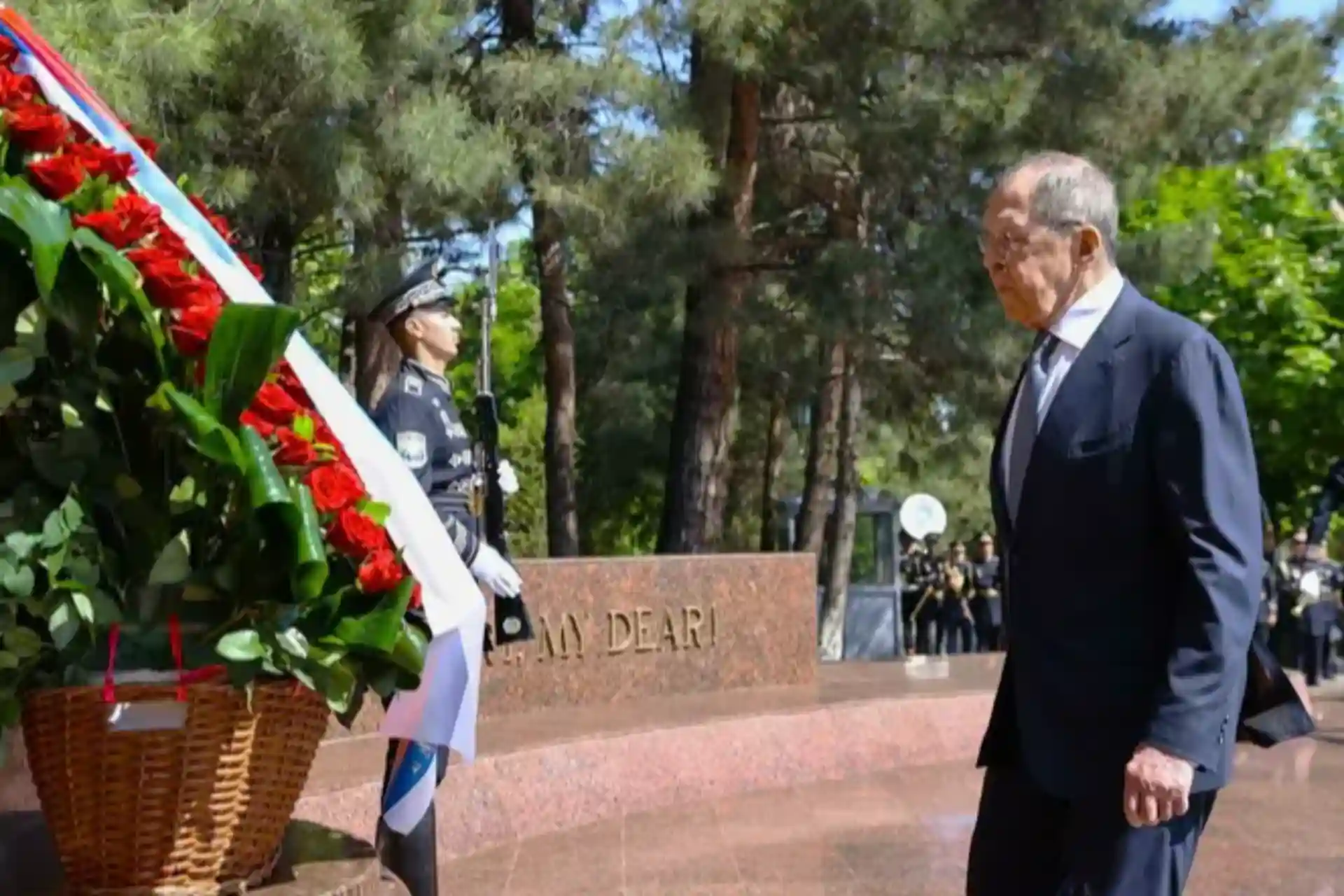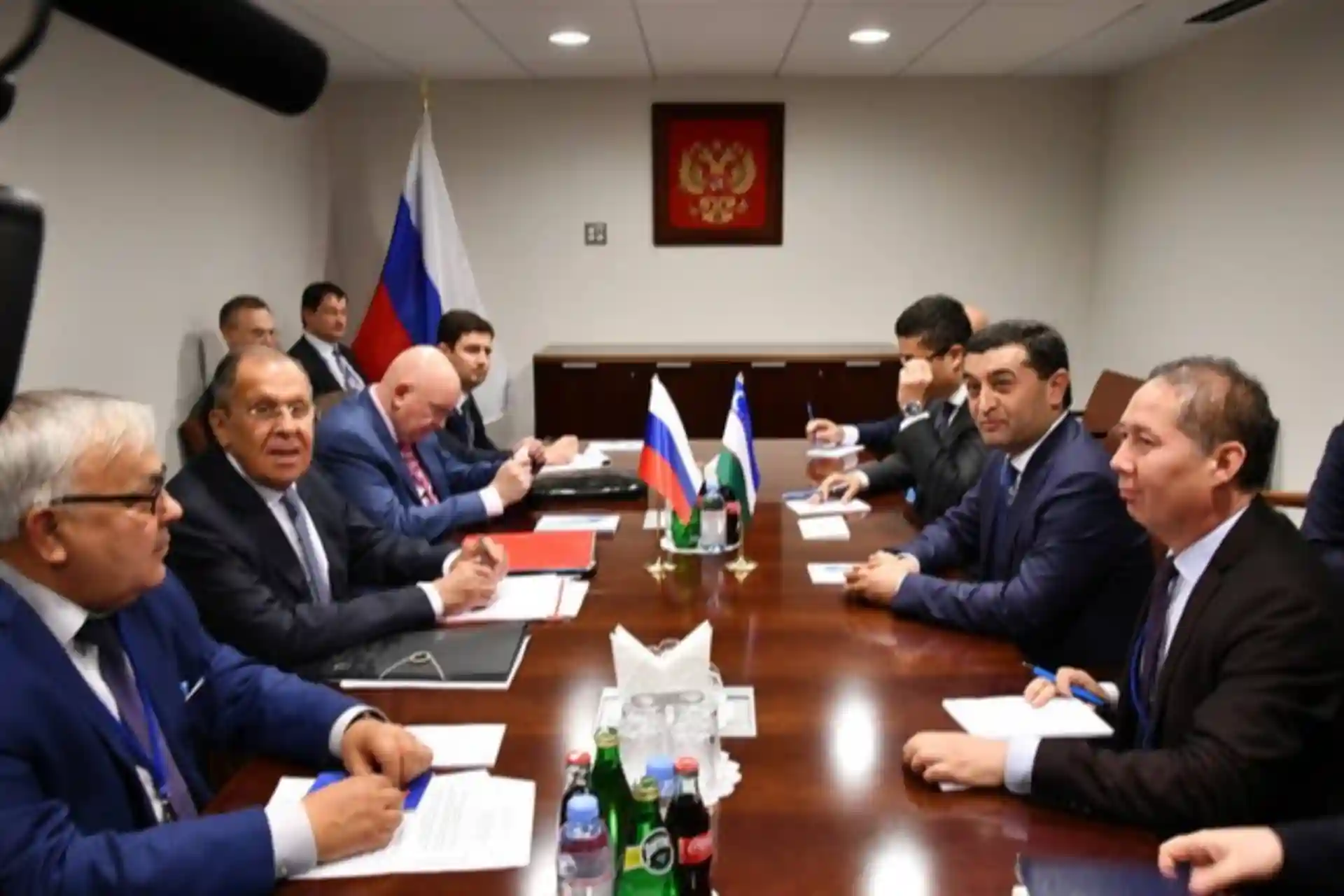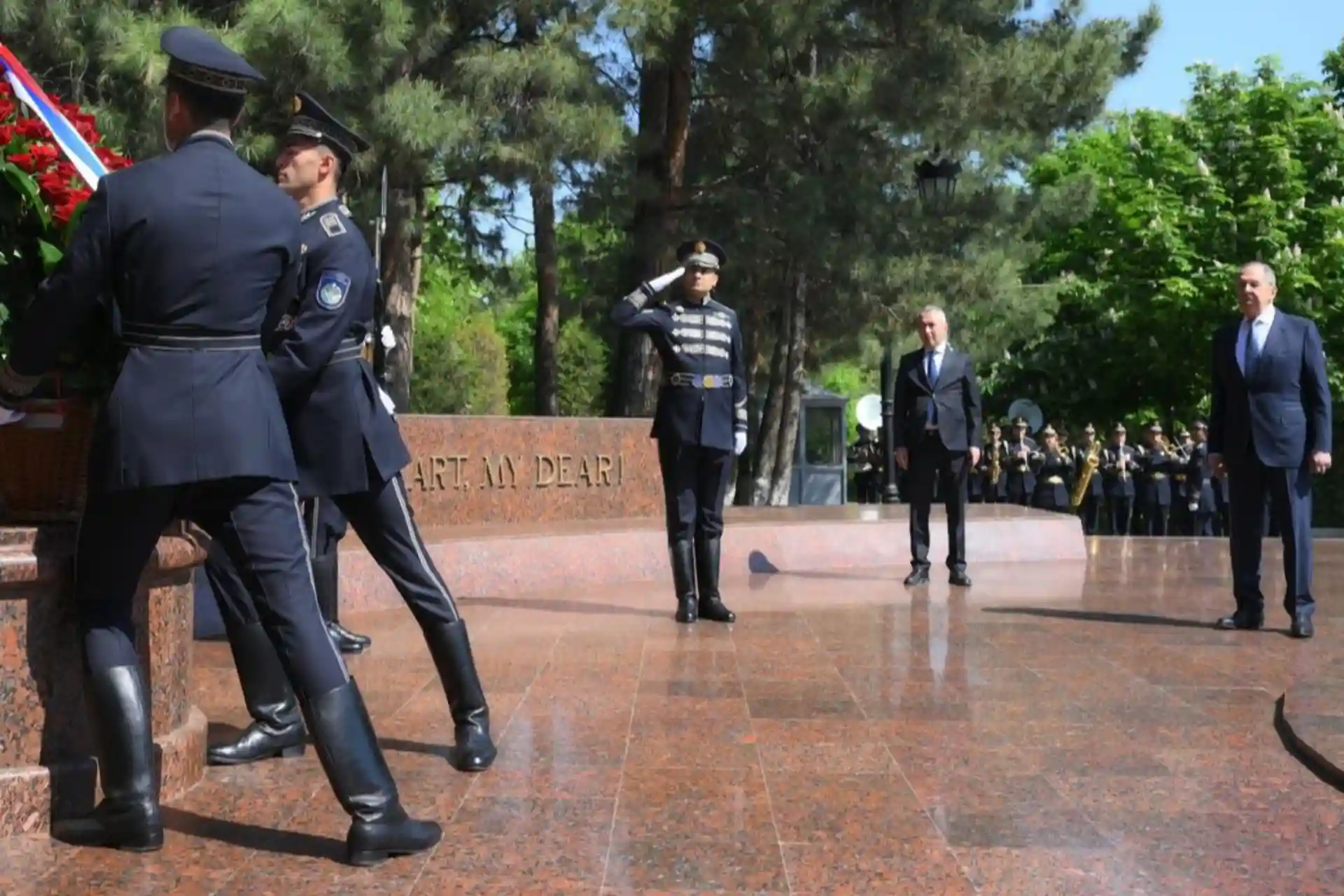Observation: Has Putin's "language front" moved to Uzbekistan?
Has Putin's "language front" moved to Uzbekistan?
Lavrov, who did not know the etiquette of hospitality
Our people have always welcomed guests with hospitality and open willingness. "A guest is as great as your father," "Don't even whisper your cat in front of a guest," and other proverbs are probably found in other languages than Uzbek, I don't know. But it is known that being a guest also has its own etiquette. For example, a guest should sit in the seat indicated by the host and not burden him with unnecessary conditions.
Many were offended by the lack of understanding of this culture or the lack of consideration for Uzbek customs by Russian Foreign Minister Sergei Lavrov, who arrived in Samarkand yesterday. The Russian guest, who felt like he was "in his father's house," was dissatisfied with the lack of an inscription in Russian at the foot of the "Mourning Mother" monument.
In fact, Lavrov's "rudeness" was already noticeable during the welcoming ceremony at the Samarkand International Airport on April 22. The Russian Foreign Minister was content to put his hand on Saidov's shoulder in response to his Uzbek counterpart Bakhtiyor Saidov's embrace. With this, he seemed to be collecting diplomatic courtesy and reacting as if to say "stay away." As if that wasn't enough, Lavrov apparently thought that "I don't have a colleague in front of me, but a "little brother"," and did not forget to pat Saidov on the shoulder. He did not even want to talk to the other people who greeted him.
President Shavkat Mirziyoyev also arrived in Samarkand to meet with the Russian Foreign Minister.
But the ceremony of the two ministers laying wreaths at the foot of the "Mourning Mother" statue in Samarkand took everyone in an unexpected direction.
Lavrov, puzzled by the English inscription on the monument, asked: "Where did the British come from?"
The person who translated for Lavrov responded to the objection by saying that Samarkand is a tourist city and it is natural to have inscriptions in all languages.
"But I don't see the Russian inscription," the Russian Foreign Minister said, annoyed. Bakhtiyor Saidov, however, did not intervene in this conversation.
What does the Uzbek public think?
"Each country decides for itself which language to write around a historical monument or statue on its territory. It is wrong for the foreign minister of another country to criticize us from abroad. After all, we are not their colony!" wrote UzJOKU rector Sherzodkhon Kudratkhodja.
"Suppose the Uzbek Foreign Minister went to Russia and asked why there were no Uzbek inscriptions on World War II monuments there, what answer would he get? Would he have the nerve to ask such a question? Then why is Lavrov's nerve?" wrote education expert and public activist Komil Jalilov
Lawyer and blogger Khushnudbek Khudoiberdiev said that he considered the Russian official's remarks "diplomatic intimidation."
"At least, it would be nice to say, 'We would be happy if there was a text in Russian as well,' as a suggestion. I'm afraid that they'll ask, 'Where's the Russian?' like an inspector coming from 'above,'" he says in his explanation.
According to Alisher Kadyrov, the leader of the "National Revival" party, known for his retorts to the claims of Russian propagandists, "Russian politicians are trying every way to worsen the attitude towards Russian culture and the Russian language in Uzbekistan."
"Why do young people in Uzbekistan try to learn English, German, Turkish, and Arabic, even though no one reminds them? Minister Lavrov cannot fail to know that the demanded respect and the falsely created need will only have the opposite effect," Kadyrov said.
The Uzbek Foreign Ministry has not yet issued any official comment on Lavrov's protest at the "Mourning Mother" monument.
Russian language conflict: yesterday and today
Lavrov is not the first Russian official to express his dissatisfaction with the state of the Russian language in Uzbekistan. Earlier, the incident of violence against a student during a Russian language lesson at a school in Tashkent caused outrage from Russian Foreign Ministry spokeswoman Maria Zakharova.
Following the incident in September last year, Zakharova noted the centuries-old positive influence of the Russian language on Uzbekistan.
The Uzbek Foreign Ministry, as usual, has not publicly responded to this conflict.
Alisher Kadyrov, on the other hand, assessed Zakharova's statement as interference in Uzbekistan's internal affairs.
In September 2023, the Russian Foreign Ministry objected to the statements of UzZHOKU Rector Sherzodkhan Kudratkhodja.
Moscow could not digest the rector's words that those who did not know the Uzbek language were "invaders or idiots" and described it as "extremely offensive and completely unacceptable."
Official Tashkent expressed its open position only once: regarding the statement of Russian propagandist Zakhar Prilepin about the annexation of Uzbekistan to Russia.
At that time, the Russian ambassador to Tashkent was summoned to the Ministry of Foreign Affairs.
What happens now?
It is said that after Lavrov's objection, public activists are saying, "Our vallamats should add Russian inscriptions to all monuments in Uzbekistan." Most likely, when this topic cools down a bit, the events they are expecting may also occur.
Let's not go too far, recently the author of the Activist project, Hojiakbar Nosirov, criticized the fact that Russian was spoken and served to ten people at the "Bon!" cafe.
The Ministry of Justice soon defended the opposing side. "The communication between employees and customers, as well as the issuance of a menu, is not required to be exclusively in the state language. In this case, the owners of the institution can use any language convenient for visitors," the ministry said in a statement.
The public, however, had a different opinion. For example, lawyer Dilshod Hoshimov stated that as a consumer, every customer has the right to demand that service providers speak Uzbek.
Alexander



